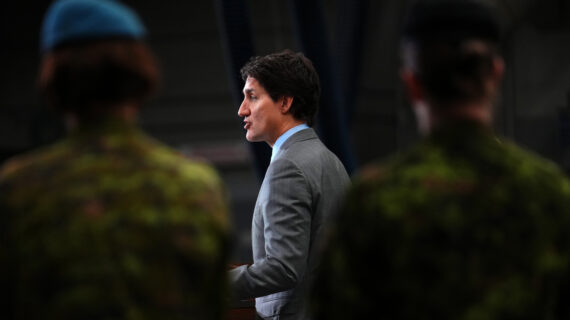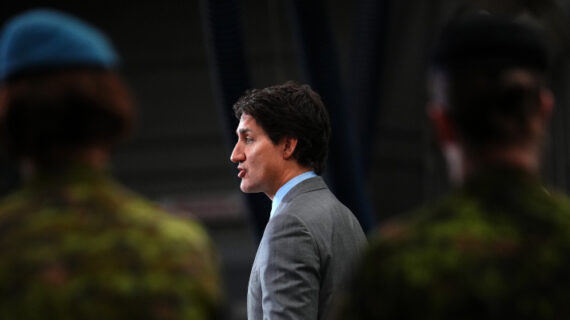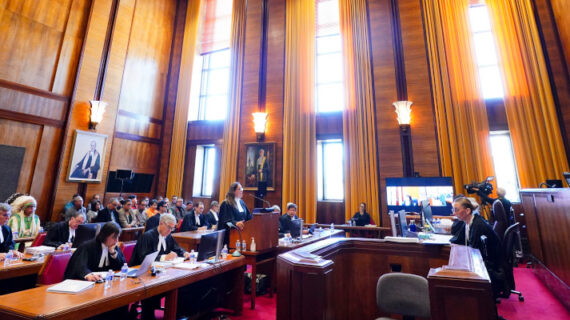The recent terrorist attacks against Israel have understandably preoccupied Canadian pundits. It’s the most consequential and horrific terrorist attack to hit one of our allies since September 11th, 2001. People are understandably devastated and angry.
One thing that’s changed since 9/11 is social media. Back then we consumed the news. Now we participate in it. That’s not necessarily a bad thing. But the incentives in a click-based information ecosystem can be terrible. Measured responses don’t get much engagement. Edgy comments do. Needless to say, there have been some extremely bad takes lately.
Those bad takes haven’t just been limited to one Kremlin stooge on Twitter. Organizations like CUPE Local 3906 have a lot to answer for to their members and to the public. But step back for a second. If you’re on Twitter, you probably knew immediately which tweet I was talking about, right? That’s because for the most part, Canadian institutions have come out in support of our allies, even if not unequivocally.
No matter what you see on Twitter, Canada isn’t a badly divided country. We’re not Germany: we don’t have a white supremacist party supported by one-fifth of voters. We’re not the United States: we don’t have a major party willing to overturn legitimate elections. We’re really not that divided.
Consider the last week. The prime minister and leader of the official Opposition both spoke at a vigil in Ottawa, each denouncing the terrorist attack. The finance minister and the NDP-affiliated mayor of Toronto spoke at Nathan Phillips Square in support of Israel, while a much smaller pro-Palestinian rally took place nearby.
While we don’t have any Canadian polling data yet, a CNN poll found that an overwhelming percentage of Americans are sympathetic to Israel after the attacks by Hamas. Seventy-one percent of Americans told pollsters they felt a lot of sympathy, while 25 percent of people said they had some sympathy. Even in America, a country with deep political divisions, there is a high degree of consensus on the matter. There’s no reason to believe polling results look much different here, notwithstanding a few protests.
Then consider Ukraine. While there’s rough political consensus on Israel, there’s virtually complete unity on Ukraine. All three major parties are fully supportive of our Ukrainian allies and there’s no equivocation from the media.
There are always loud minorities on the other side of any issue, even whether gravity exists or not. We shouldn’t let them become a distraction. Fixating on them sure doesn’t help our allies in Israel or Ukraine, or our Jewish friends at home. Helping our friends and allies requires concrete measures, not rhetoric. I’m not an expert on geopolitics, but I can tell you that finger-pointing won’t help anyone.
Push comes to shove, Canadians are, for the most part, rowing in the same direction. We may sometimes lack resolve, but we share broad goals. No one anywhere near the levers of power is cheering on Vladimir Putin. No important elected official is cheering on Hamas. Few countries can claim that kind of political unity.
That isn’t to say we shouldn’t criticize people who have opinions we disagree with. We should. But we also need to recognize that in a pluralistic society, there will be some people with horrible opinions. Frankly, in a non-pluralistic society there will be even more people with terrible opinions. We can’t prevent that: we’re human.

What we shouldn’t do is paint broad groups with the same brush. Scouring the Internet to find people with bad opinions doesn’t help anyone. I recognize that partisan point scoring will always be tempting. But it’s not helpful. Not everything needs to be a wedge issue. We aren’t a deeply divided country. We shouldn’t try to exaggerate our differences, even if you think it will help your team in the next election. We’re bigger than any team.
We all get a dopamine hit from arguing with people online. It’s one of the dark sides of social media. But being preoccupied with disagreements doesn’t help anyone. It’s bad for our mental health. It’s bad for the country. We don’t need to go looking for fights over every single issue. Get some fresh air. Touch grass. Our neighbours aren’t your enemies.
We live in a great country full of great people, even if there are some bad ones. We should celebrate that. Stoking disagreements doesn’t move the ball forward. It bogs us down in pointless arguments. We can do better than that. We should. We must.




